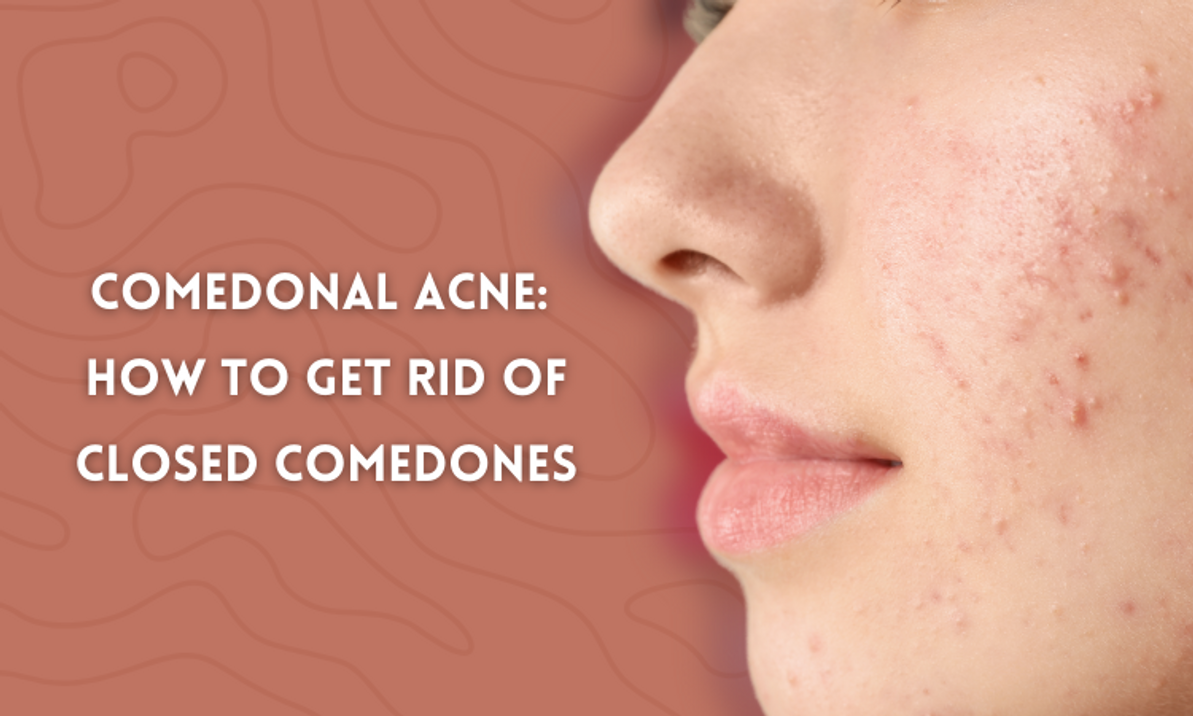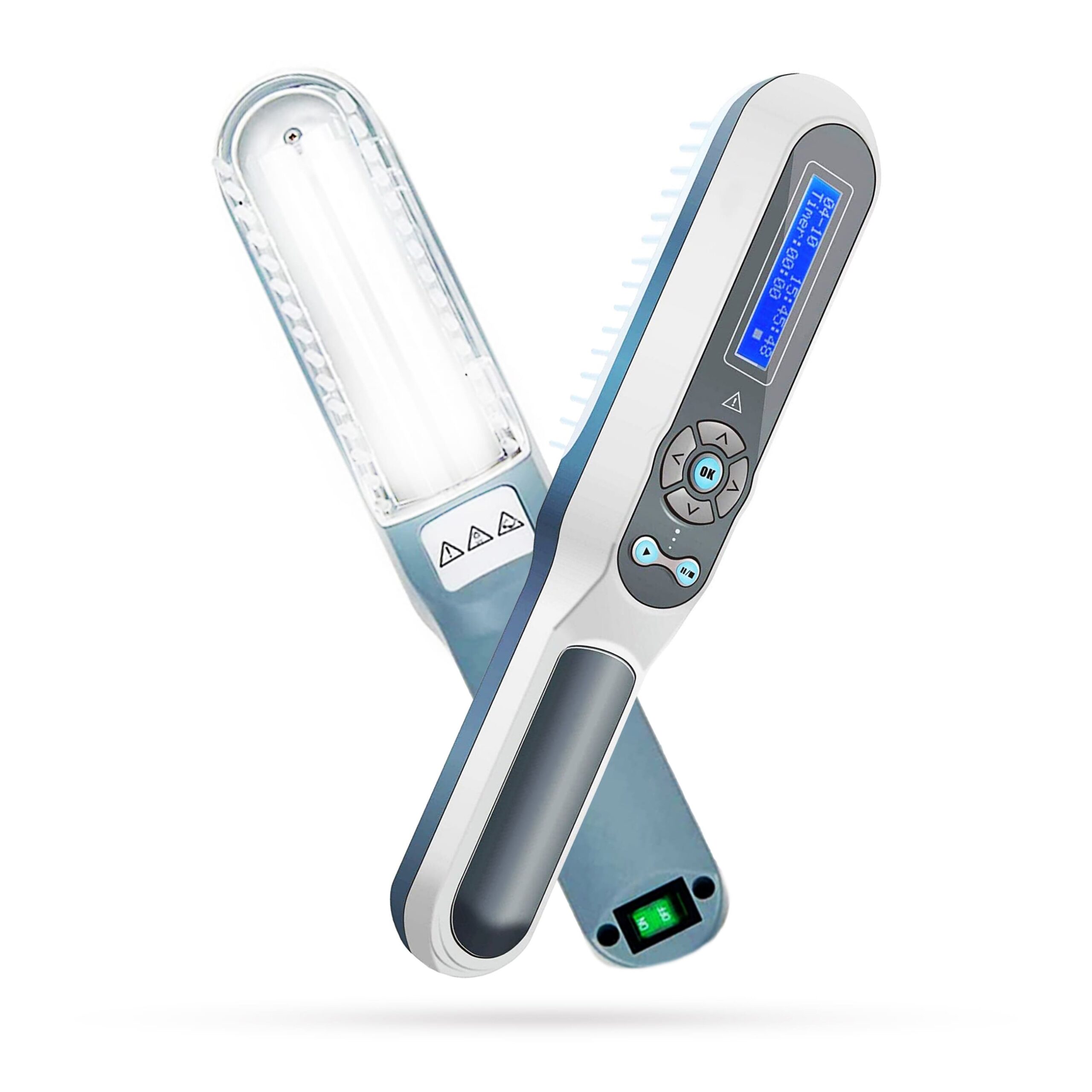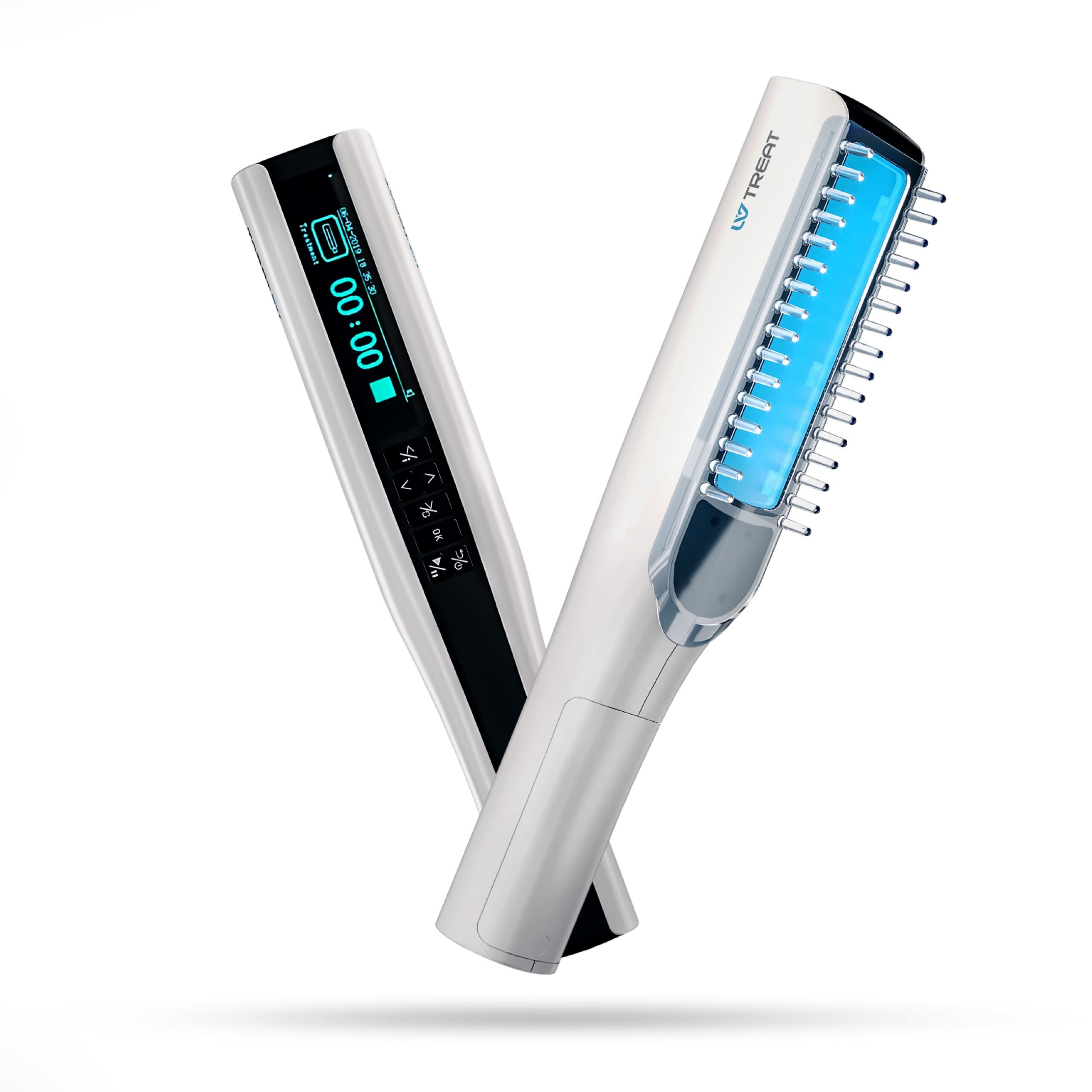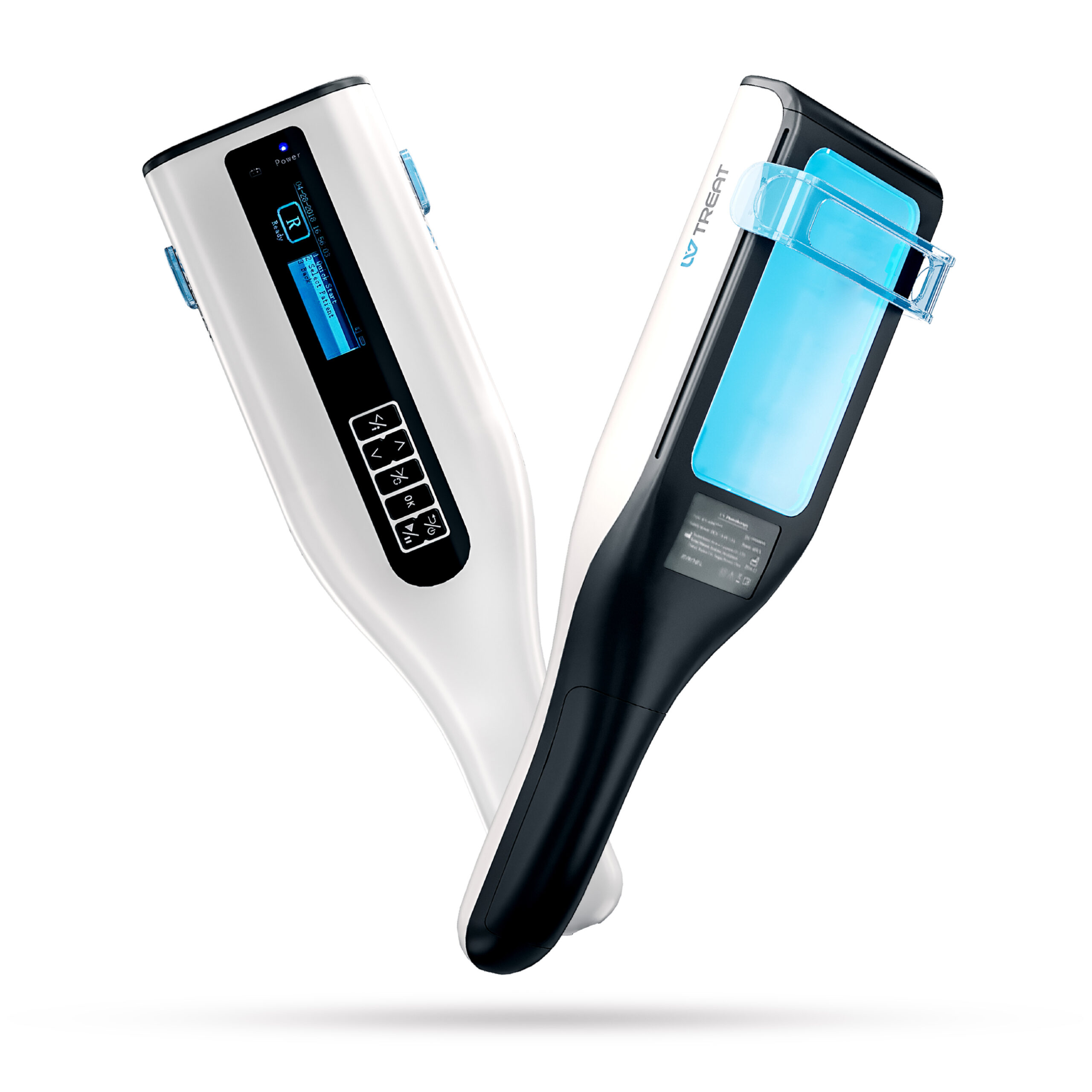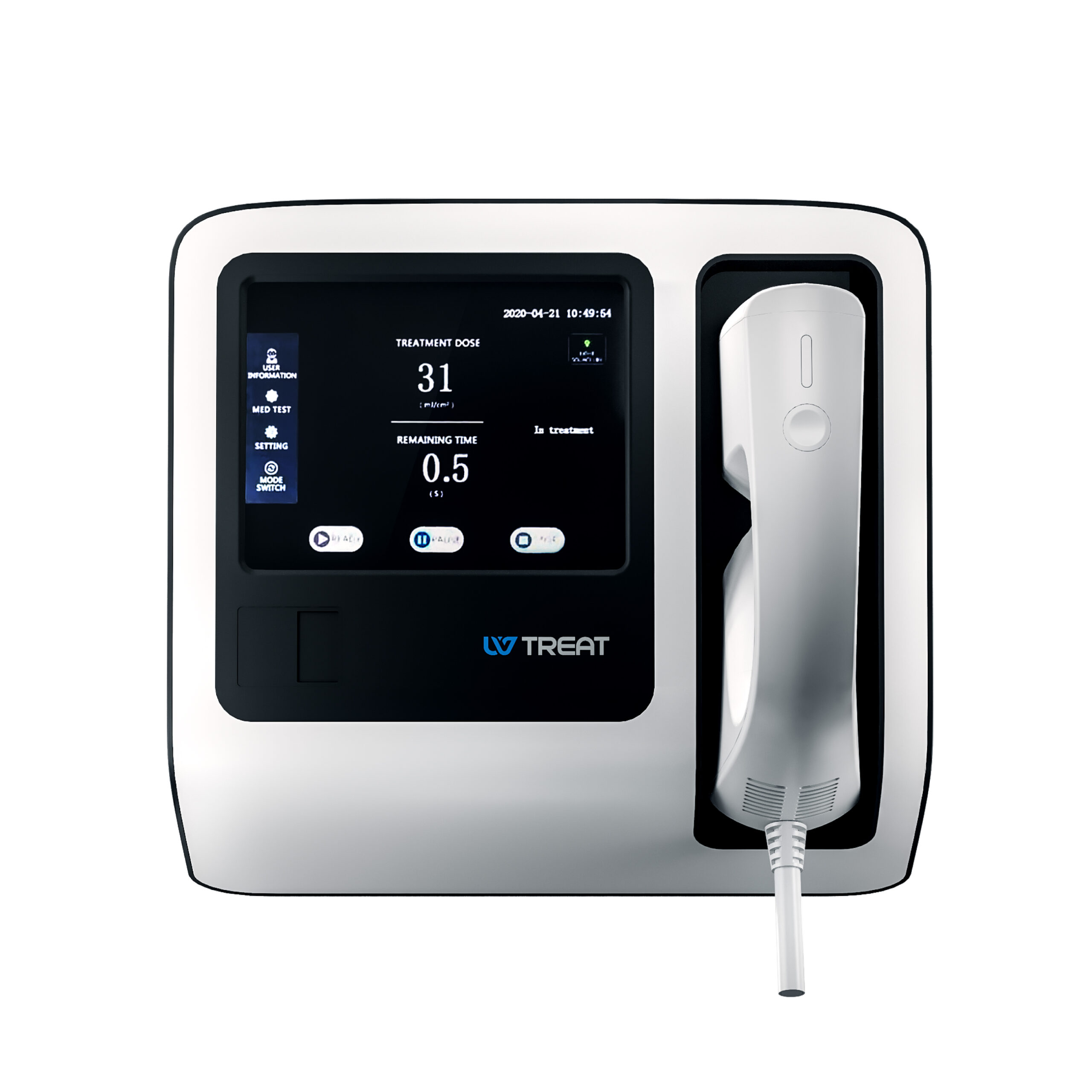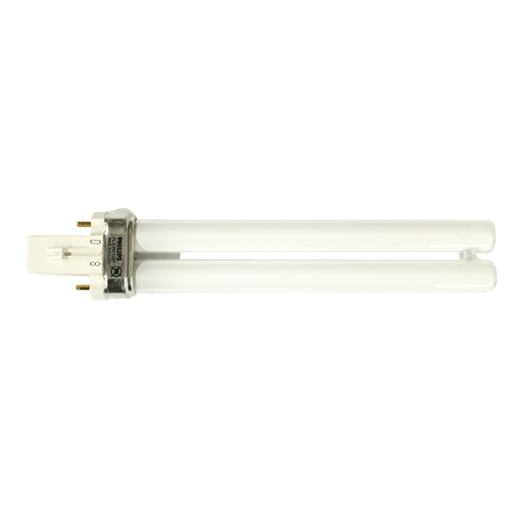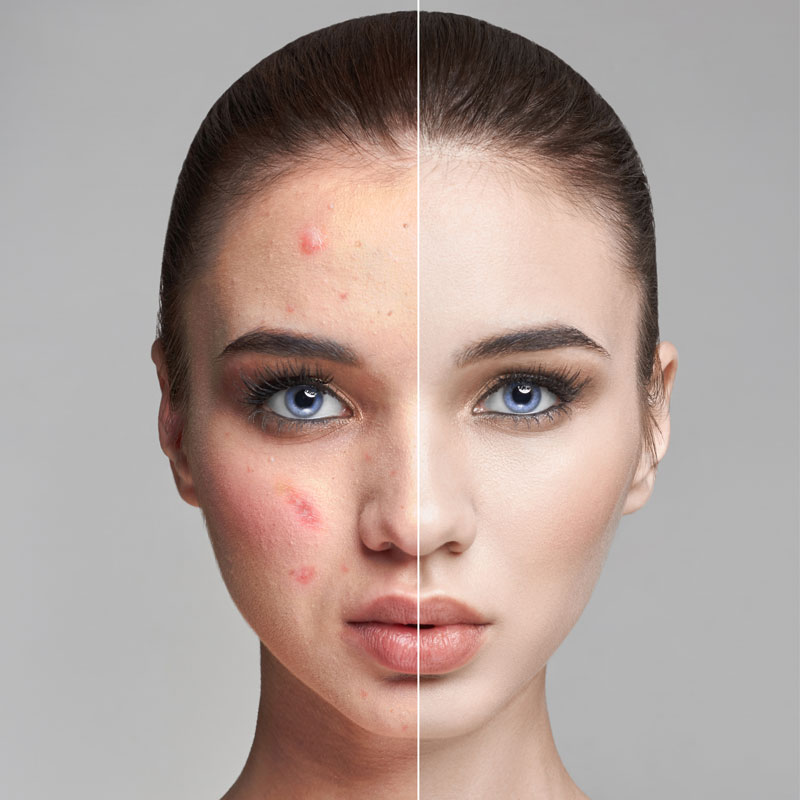How to Get Rid of Closed Comedones
Comedonal acne, a non-inflammatory type of acne, primarily manifests through closed comedones, commonly known as whiteheads, and open comedones, or blackheads.
Closed comedones form when excess oil and dead skin cells clog hair follicles, creating a small, flesh-colored bump on the skin’s surface. Unlike inflammatory acne, comedonal acne doesn’t usually cause swelling or redness, but it can be persistent and distressing for those affected.
Understanding the Causes of Comedonal Acne
To effectively tackle comedonal acne, it is essential to understand its underlying causes. Various factors contribute to the formation of closed comedones, such as excess sebum production, hormonal fluctuations (particularly during puberty or menstrual cycles), and improper skincare. Genetic predisposition and environmental factors, including humidity and the use of comedogenic skincare or makeup products, can also exacerbate this condition.
Skincare Routine for Managing Comedonal Acne
A diligent skincare regimen tailored to unclog pores and regulate oil production can significantly improve comedonal acne. Consider the following steps:
- Cleansing: Choose a gentle, non-comedogenic cleanser to wash away dirt and excess oil without stripping the skin of essential moisture. Look for products containing salicylic acid or benzoyl peroxide, which are effective in acne treatment.
- Exfoliation: Incorporate chemical exfoliants, such as alpha-hydroxy acids (AHAs) or beta-hydroxy acids (BHAs), to remove dead skin cells and prevent clogged pores. Limit physical exfoliation, as it may irritate the skin.
- Toning: Apply a toner with soothing ingredients like witch hazel or niacinamide to balance your skin’s pH and refine pores.
- Moisturizing: Opt for an oil-free moisturizer to maintain hydration without aggravating acne. Products containing hyaluronic acid or glycerin can help retain moisture.
- Sun Protection: Use a broad-spectrum sunscreen daily to protect your skin from harmful UV rays, even on cloudy days. Non-comedogenic formulas are crucial to prevent additional breakouts.
Topical Treatments and Over-the-Counter Solutions
Over-the-counter treatments can aid in managing closed comedones by reducing sebum production and promoting skin cell turnover. Consider formulations with:
- Retinoids: Retinoids like adapalene and retinol are derivatives of vitamin A that help unclog pores and improve skin texture.
- Salicylic Acid: This BHA penetrates deeply into pores, dissolving debris and preventing comedone formation.
- Benzoyl Peroxide: While more common in inflammatory acne treatments, benzoyl peroxide may also help reduce the bacteria associated with comedonal acne.
Professional Treatments for Stubborn Cases
For persistent comedonal acne, professional dermatological treatments may be beneficial. Some options include:
- Chemical Peels: These treatments use a higher concentration of exfoliating acids to remove dead skin cells and deep-cleanse the pores.
- Microdermabrasion: This non-invasive procedure gently exfoliates the skin, removing surface impurities and promoting regeneration.
- Extraction: Performed by a dermatologist or trained esthetician, manual extraction can safely remove stubborn closed comedones.
Lifestyle Modifications and Diet
A holistic approach to acne management includes evaluating diet and lifestyle factors. Maintaining a balanced diet rich in antioxidants and low in sugar may improve skin health. Ensure proper hydration and consider omega-3-rich foods, like fish and flaxseeds, which can have anti-inflammatory effects.
Frequently Asked Questions (FAQ) About Comedonal Acne
1. What are the primary causes of closed comedones?
Closed comedones are typically caused by a combination of excess oil production, dead skin cell accumulation, and clogged hair follicles. Hormonal fluctuations, certain skincare products, and environmental factors can also contribute.
2. Can closed comedones become inflamed acne?
Yes, if bacteria invade clogged follicles, closed comedones can develop into inflamed acne, leading to pimples, pustules, or cystic acne.
3. How long does it take to see improvement with treatment?
Results depend on the treatment and individual skin type, but significant improvement is often noticeable within four to eight weeks with consistent skincare and over-the-counter treatments.
4. Is it safe to pop closed comedones?
It’s advised not to attempt popping closed comedones as improper extraction can lead to skin irritation, infection, or scarring. Instead, consider professional extraction.
5. Are there any natural remedies for comedonal acne?
Natural remedies like tea tree oil, witch hazel, and aloe vera may help soothe the skin and reduce the appearance of comedones, but their efficacy varies among individuals.
6. Can dietary changes help with comedonal acne?
While diet alone is unlikely to cure acne, reducing high-sugar intake and incorporating antioxidants and essential fatty acids can potentially improve overall skin health.
7. Is oily skin more prone to closed comedones?
Yes, oily skin tends to produce more sebum, which can lead to clogged pores and closed comedones if not managed properly.
By incorporating appropriate skincare, considering professional treatments, and maintaining a healthy lifestyle, individuals can effectively manage and reduce the occurence of closed comedones, leading to clearer and healthier skin. Remember to consult with a dermatologist to tailor treatments to your specific skin needs and conditions.
